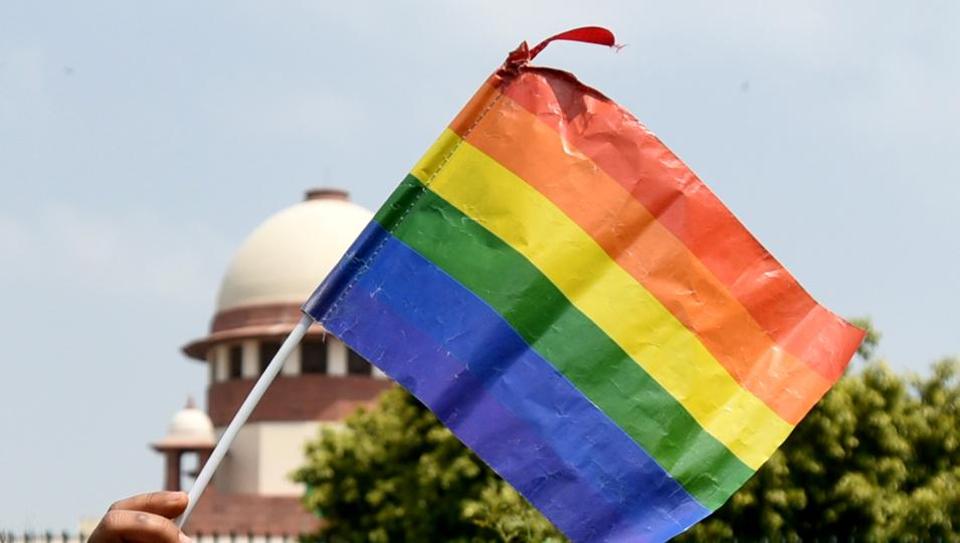(This was written in the Hindustan Times as an op-ed).
At the Constitution Club in Delhi on July 7, the weekend before the five-member Supreme Court (SC) bench began its deliberations on Section 377, the mood was sombre. All of us gathered there — lawyers, activists, academics, representatives of NGOs and the corporate world — knew well how precarious our hope was, especially after our elation was snuffed out when, in 2013, the SC reversed the 2009 Delhi High Court judgment, which had read down Section 377.
Three days later, as the Supreme Court hearings began on the petitions — pleas by transgender individuals such as Akkai Padmashali, activists like Arif Jafar and Ashok Row Kavi, businesspeople such as Keshav Suri and Ritu Dalmia, groups of individuals representing alumni of the different Indian Institutes of Technology, collectives like Voices against 377, parents of LGBTI individuals, mental health professionals and more— millions of Indians held their breath. It was a chance to witness history being created. Menaka Guruswamy, an advocate for a clutch of IITians, emphasised that her petitioners were the makers of modern India — scientists, engineers, government servants, all of whom are closeted. She said: “It is not just consensual sex between homosexual partners that this Court should recognise, but their love for each other. How strongly must you love knowing that you are unconvicted felons under Section 377.”
As we now exhale in relief after reading the unanimous verdict, two things come to my mind. First, the language of the verdict, which makes it clear that the idea of India shared by the judges of the Supreme Court, is very much in line with our brilliant Constitution.
The law matters. The law protects. The law empowers. This progressive Supreme Court judgment adds another layer of protection.
The Constitution bench has established jurisprudence that will protect our country’s LGBT citizens and also opens the doors to further legal victories. Globally, LGBT equality has led to the legalisation of marriage, rights for same sex couples to adopt children, and inherit their partner’s property, and I see no reason why India should not embark on a similar journey too.
In his comments about the Union government’s stand on Section 377, our law minister, Ravi Shankar Prasad, stated: “Maybe sexual preference is also a personal choice…other issues like same sex marriage are a separate matter.” Additional solicitor general, Tushar Mehta, openly remarked in court that he was “worried” that scrapping Section 377 would open the door to the granting of further rights to India’s LGBT citizens. Why shouldn’t these doors b, e opened? We are no longer criminals. Why should we be anything less than equal to other citizens of this country?
The bigoted views expressed by those opposing decriminalisation in the SC may have been dismissed by the judges present, but so many people continue to think like this. We will have to work collectively on transforming this into tolerance, acceptance and inclusion, across the political spectrum. Queer activism across the country has been doing this. We are successfully creating safe spaces for our own selves. It is now time to extend these efforts outwards.
One of the places where we can achieve results is the Indian workplace. A 2016 MINGLE report stated that two-thirds of Indian employees hear homophobic remarks. Transpersons are routinely harassed and denied jobs. Despite these challenges of persistent homophobia, transphobia and harassment, I see a new India forming itself each day in offices across our country.
In Godrej, I am part of the recruitment team for bringing in new talent. Almost every college campus I go to, I speak about LGBTQ inclusion. Most of them now have LGBT initiatives, like IIM Ahmedabad’s Ally, or conduct their own Pride Marches on campus, like the Indian School of Business did recently on its Mohali campus. It is pretty clear that for young India, the future generation of this nation, acceptance and inclusion of LGBTQ individuals is the norm.
I am also a part of conferences like the Out & Equal LGBTQ India Forum which was held last month, and was attended by 100 executives from Indian and multinational corporations. When we launched the United Nations Global Standards of Business Conduct for LGBTQ inclusion at Godrej some months ago, 40 companies showed up. More and more companies are putting up their hand in corporate India to bat for inclusion.
There is enough data now showing that focusing on LGBTQ issues for corporations is good business sense. According to the venture capital firm LGBT Capital in 2015, globally the spending power of the LGBTQ community was between $3.7 trillion to $4.6 trillion. In India, according to a 2016 World Bank report, our country’s loss in GDP due to homophobia was valued at $32 Billion, or 1.7% of our GDP. I believe that corporate India — out of enlightened self interest — will push for change more and more over the coming years.
The SC judgment has enabled queer India to have our own tryst with destiny, and now the time is here for all of us — LGBTQIA, straight, allies, however we choose to identify — to roll up our sleeves, and get to work to redeem our pledge, not wholly or in full measure, but very substantially. I for one, couldn’t be happier to be part of this new India.

